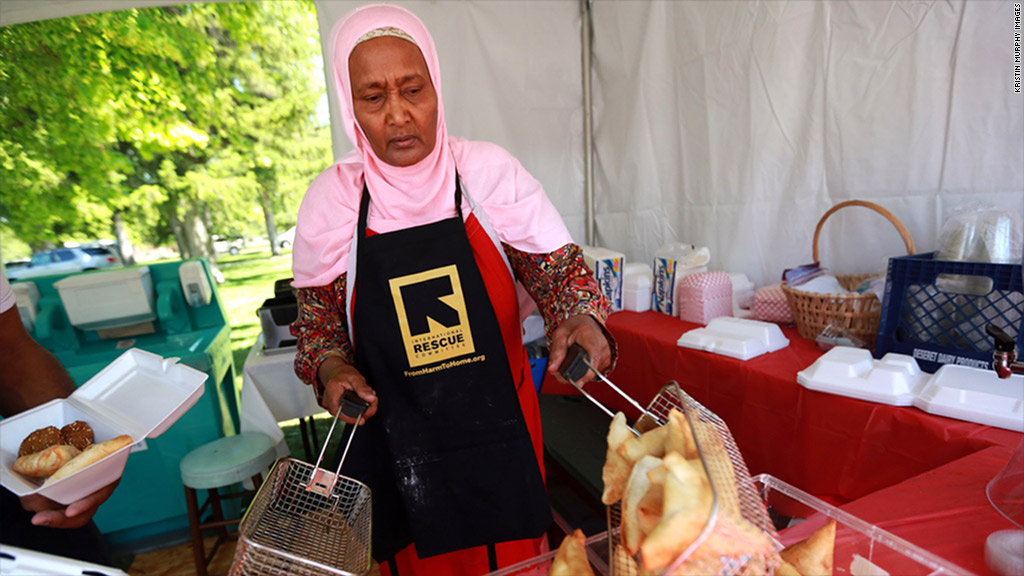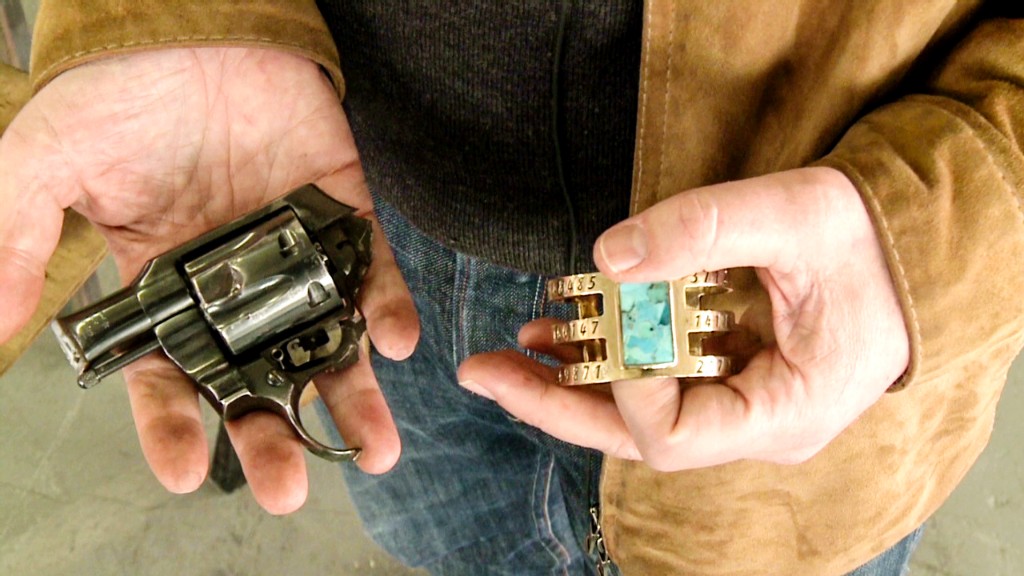
Think starting a business is hard? Try doing it after spending 20 years in a refugee camp and coming to the U.S. with nothing more than three suitcases and your family.
Kamal Sharma arrived in the United States in 2010, only to spend the last four years stocking at Wal-Mart, working at a meatpacking plant, and waiting tables at a Salt Lake City Indian restaurant. Now, the Bhutanese refugee and his family dream of starting a restaurant of their own.
Not only is money a challenge, but he's had to learn the basics of American customer service. In Bhutan, making eye contact with a stranger is seen as aggressive. Now Sharma, 46, knows it's what customers expect.
He learned that and everything "important with business" through the Spice Kitchen Incubator, a new Utah-based program for lower income refugees and immigrants who are aspiring food entrepreneurs. From a Burmese mom who hopes to start a restaurant to a Congolese grandma who wants to sell more hot sauce, the first class of eight participants was chosen largely for their entrepreneurial spirit.
Related: Solar lamps help rural villages
They spent six months learning everything from how to budget and manage cash flow to how to develop menus and estimate startup costs. Restaurant owners and food industry professionals volunteered their time and expertise for workshops and mentoring. The Women's Business Center in Salt Lake City ran classes and a culinary instructor on Spice's staff provided guidance.
Because no one in the first cohort is ready to launch, Spice will continue to work with them for anywhere from six months to several years depending on their training needs, finances and unique challenges such as language barriers. A new class of 10 participants will start in the fall, followed by another in the spring.
"The idea is we're moving people out of poverty," said Natalie El-Deiry, the Salt Lake City International Rescue Committee deputy director. "That could mean someone is making $30,000 or $40,000 per year."

Over the summer, participants, who don't pay for the training, will run food booths at festivals and the Salt Lake City farmer's market. Spice, which is a partnership between the nonprofit IRC and Salt Lake County, pays the entry fees and helps with menu selection and pricing. The program also connects the participants with catering jobs, a free commercial kitchen and guidance on how to describe and display the food to Americans who may be unfamiliar with the names and flavors. Spice helps fund itself with fees charged to catering clients.
Spice modeled itself after San Francisco-based La Cocina, another kitchen incubator aimed at helping minority and immigrant women start their own businesses. Since it began in 2005, the program has had 20 graduates, some of whom created products that are now sold at Whole Foods (WFM) and Wal-Mart (WMT) and five who will open restaurants in the San Francisco Bay Area this year.
Spice hopes to help its graduates achieve the same sort of success.
Before joining Spice, one Congolese immigrant was driving from Utah to Texas to sell her smoked chicken, which she'd like to sell in major grocery stores along with her hot sauce. Spice is helping her define her business goals and plan how to reach them.
"People love her food," said Ze Min Xiao, the community innovation manager for Salt Lake County. "It's not a matter of the right talent or customers -- it's that she doesn't have the right infrastructure."
Related: Create jobs, save a cow
Lucy Philip, a Burmese refugee, arrived in Utah in 2009 and soon took over her uncle's sushi delivery business. But with little experience or support, she struggled -- initially making the food from midnight to 3 a.m. at the only commercial kitchen she could find.
When she wanted to grow her business by supplying sushi to a major grocery chain, she worked with El-Deiry to prepare a pitch packet and rehearse her proposal, which succeeded.
As part of Spice's inaugural class, the 27-year-old now hopes to start a Burmese restaurant. After serving a three-course meal to a Spice-organized focus group this spring, she learned she will have to make her food less spicy.
"I just can't sell something and expect people to like it," Philip said.



